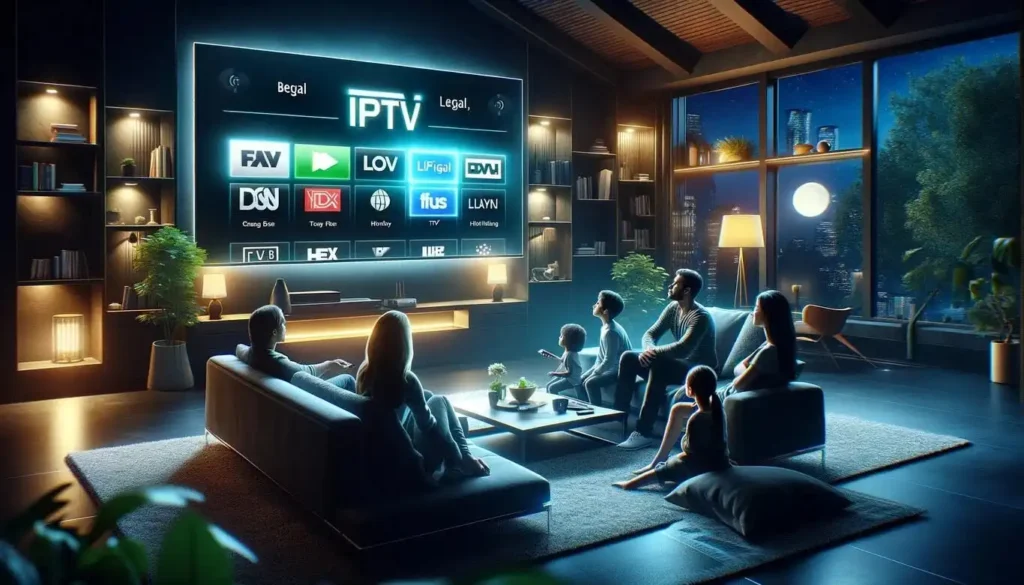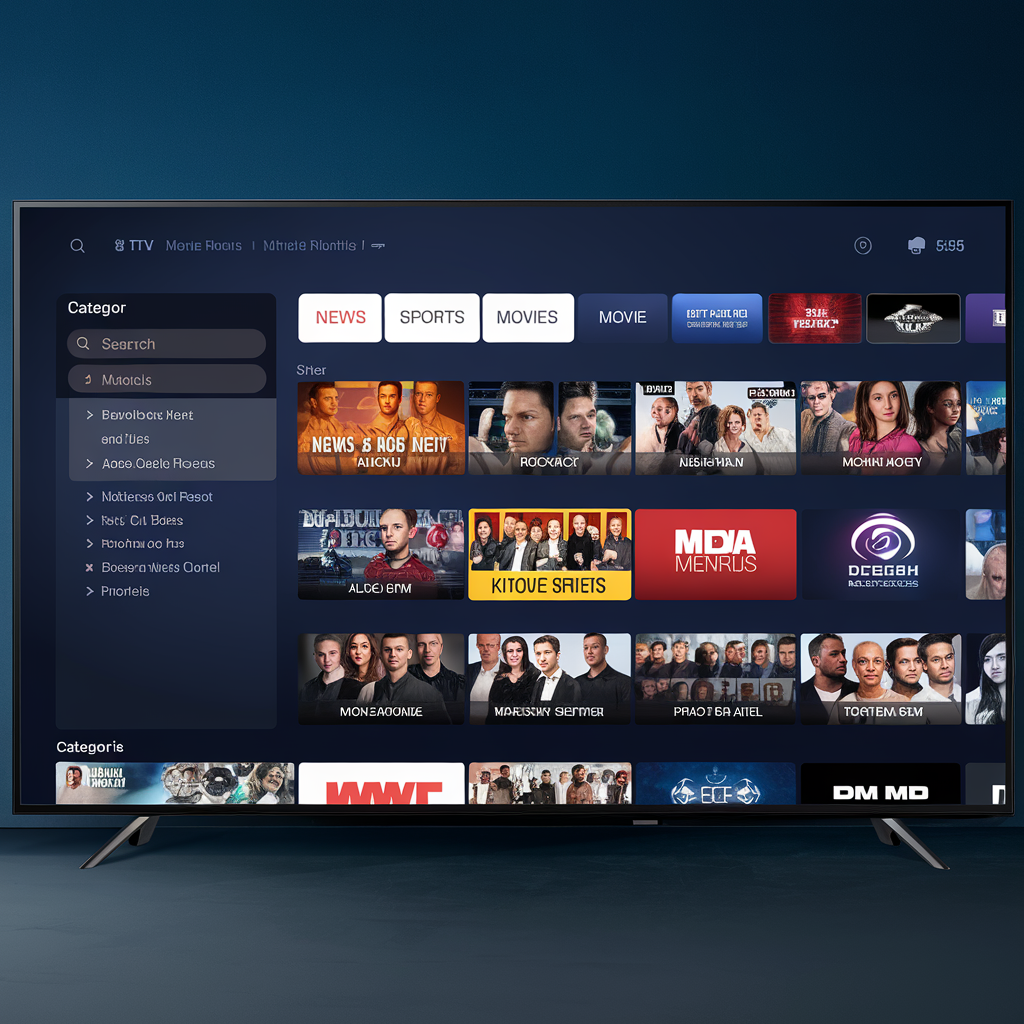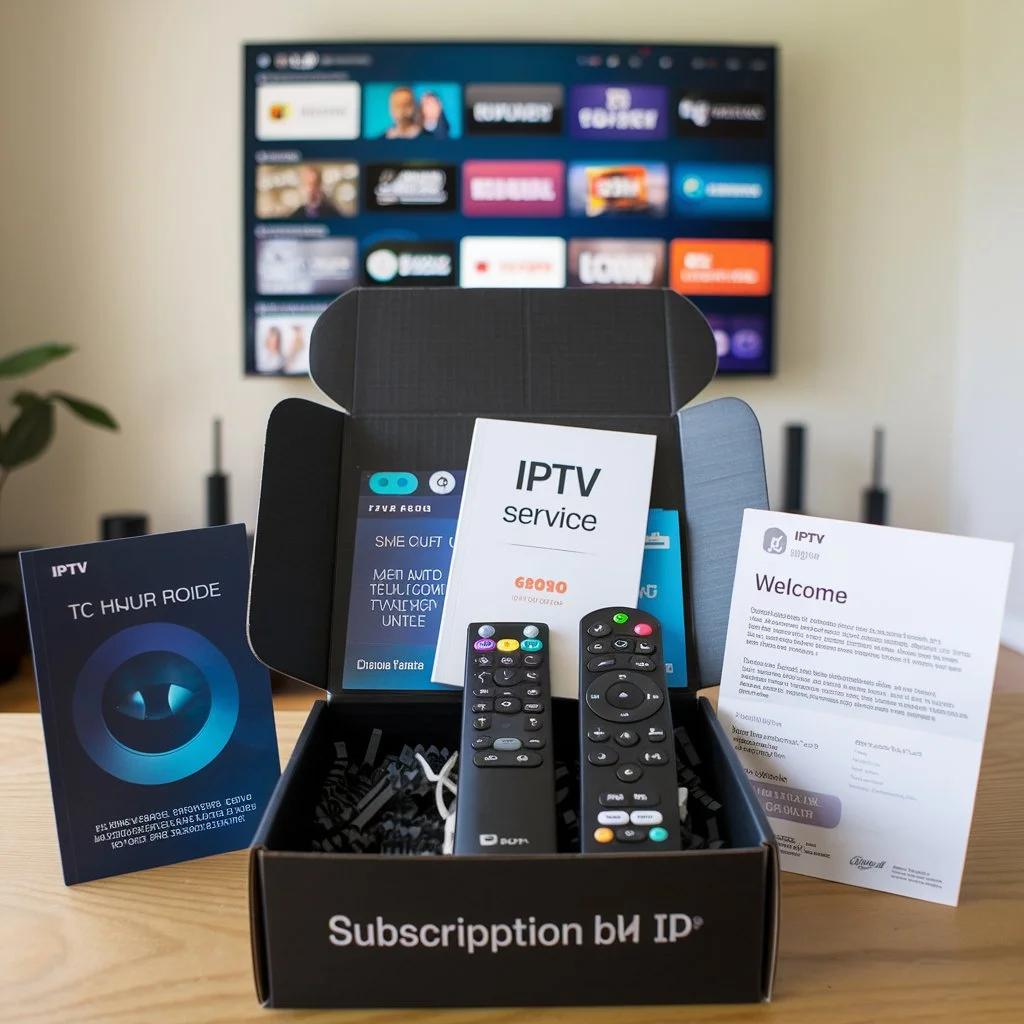Save Big on Entertainment: How IPTV Subscriptions Cut Costs for Viewers
[ad_1] The way we consume entertainment has evolved significantly over the years. With the introduction of the internet and advancements in technology, traditional cable and satellite television have been challenged by innovative streaming methods. Among these, Internet Protocol Television (IPTV) stands out as a cost-effective alternative. In this article, we will explore how IPTV subscriptions can help viewers save money while enhancing their entertainment experience. Understanding IPTV IPTV stands for Internet Protocol Television. Unlike traditional television, which delivers content via satellite or cable formats, IPTV uses the internet to deliver television programming. This means that viewers can watch live TV and on-demand content through their internet connection, making it a versatile option for modern consumers. The Rising Costs of Traditional TV Many households are feeling the financial pinch of rising cable and satellite bills. According to recent reports, the average monthly cost of traditional cable subscriptions can exceed $100. Additionally, many providers add various fees for equipment rentals, installation, and premium channels, causing expenses to balloon further. High subscription costs: Monthly rates for cable and satellite packages can quickly add up. Additional fees: Hidden fees often include installation costs, equipment rentals, and taxes. Long-term contracts: Many providers require consumers to sign lengthy contracts, locking them into unfavorable rates. Limited flexibility: Cable packages typically have rigid terms and limited options for customizing content. The Advantages of IPTV IPTV offers several benefits that make it an attractive option for viewers looking to save money on entertainment. Here are some key advantages: Affordability: IPTV subscriptions are often significantly cheaper than traditional provider packages, with numerous plans starting at $20 to $50 per month. No hidden fees: Most IPTV services have transparent pricing with no unexpected charges. Flexible plans: Viewers can choose from various packages that allow them to pay for only the channels they want. On-demand content: IPTV allows users to watch their favorite shows and movies whenever they want, without being limited by scheduling. Access to international content: Many IPTV providers offer channels from around the world, which is especially beneficial for expatriates or those interested in foreign films and shows. User-friendly interfaces: IPTV services often come with user-friendly apps and interfaces that make it easy for viewers to navigate and find content. Comparing Costs: IPTV vs. Traditional TV To illustrate the cost-effectiveness of IPTV, let’s take a closer look at a comparison of expenses associated with both options: Item Cable/Satellite TV IPTV Basic Package Price $100/month $20-$50/month Additional Sports Package $15/month Included or $5-$10/month Equipment Rental Fees $10/month $0-5/month (if any) Contract Length 12-24 months Month-to-month or flexible terms As seen in the table, IPTV clearly has the advantage when it comes to pricing and flexibility for consumers. Choosing the Right IPTV Service While the benefits of IPTV are clear, choosing the right service provider is crucial to ensuring a positive experience. Here are some tips to guide your selection: Research providers: Look for reputable IPTV providers with good reviews and a strong track record. Check channel offerings: Ensure that the provider offers channels and content that align with your viewing preferences. Assess technical support: Good technical support is key in resolving any potential issues, so look for providers that offer robust customer service. Test before you buy: Many providers offer trial periods, allowing you to test the service before committing to a subscription. Challenges of IPTV While IPTV is a fantastic option for many consumers, it is not without challenges. Understanding these potential pitfalls can help viewers make informed decisions: Internet dependency: IPTV relies on a stable internet connection. Users with slow or unreliable internet may experience buffering or interruptions. Legality and licensing: Not all IPTV services operate within legal boundaries. It’s essential to verify that the provider has appropriate licensing agreements. Variable quality: The quality of service can significantly vary among providers. Researching and reading reviews can help mitigate this issue. Future Trends in IPTV The IPTV market is rapidly evolving, and several trends are shaping the future of this platform: Integration with Smart TVs: Many IPTV services are now building apps that can be directly integrated into smart TVs, making it easier for consumers to access content. Emerging technologies: Advancements in streaming technologies and internet speeds are expected to improve the quality and stability of IPTV services. Personalized content: Providers are beginning to offer personalized content recommendations based on viewing preferences, enhancing the user experience. Conclusion IPTV subscriptions present a fantastic opportunity for viewers to cut costs on their entertainment experiences without sacrificing quality or content choice. As traditional cable and satellite services continue to rise in price with hidden fees and rigid contracts, the flexibility and affordability of IPTV provide a feasible alternative for consumers looking to save big. By understanding IPTV, researching providers, and being aware of potential challenges, viewers can fully embrace this modern approach to entertainment. FAQs What is IPTV? IPTV stands for Internet Protocol Television and refers to the delivery of TV programming through the internet rather than traditional satellite or cable formats. How much can I save with IPTV? Viewers can save anywhere from 30% to 50% on their monthly entertainment costs by switching to IPTV, depending on the provider and package selected. Is IPTV legal? Not all IPTV services are legal. It’s essential to choose a provider that operates within legal parameters and has proper licensing agreements. Do I need a special device to use IPTV? No special device is typically required. Most IPTV services can be accessed via smart TVs, streaming boxes, computers, tablets, and smartphones. What internet speed do I need for IPTV? While specific requirements may vary by provider, a minimum internet speed of 10 Mbps is generally recommended for optimal streaming quality. [ad_2]







